Making a Maryland Macbeth
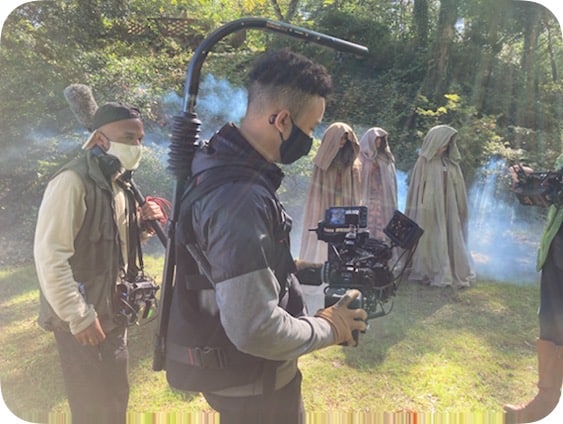
Director of Photography Anzhonny Castillo films the witches. 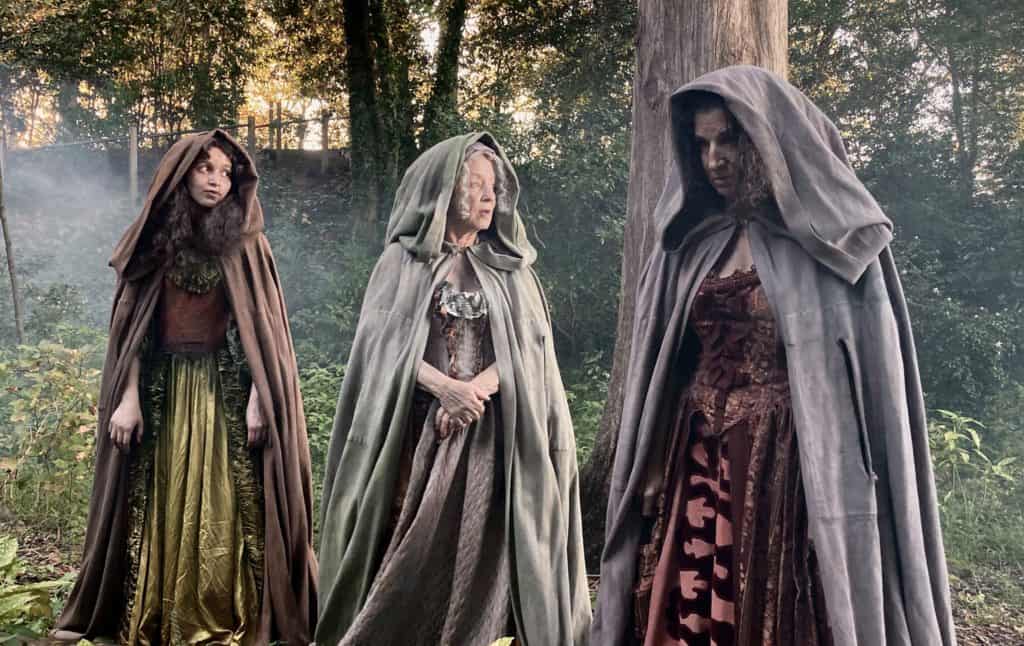
Nicole Albanese, Nancy Krebs, and Christine Asero are the witches. 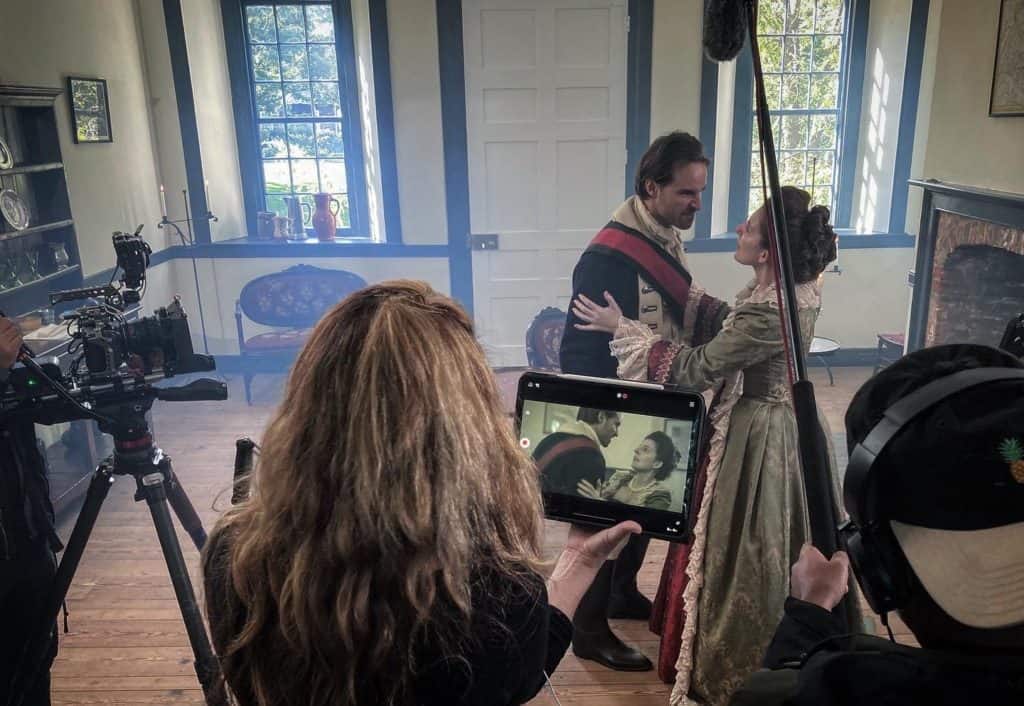
Macbeth (Brock Vickers) and Lady Macbeth (Rebecca Cureton) work a scene with ASC director Sally Boyett in the foreground.
Local Theater Company Tries New Medium
By Jim Reiter
For the Annapolis Shakespeare Company, the “hurry up and wait” that has been the bane of theater companies across America during the COVID shutdown has been replaced by the “hurry up and wait” of movie making.
Actors and directors were already working on a production of Shakespeare’s Macbeth before the shutdown brought live theater to a screeching halt. So the company’s founding artistic director Sally Boyett decided that ASC would “make an investment in the future of our company” by turning the Bard’s famous tragedy into a feature film, available to local schools as well as to patrons.
“It’s an incredible way to learn Shakespeare,” said Boyett, who added that the educational version will include behind-the-scenes commentary about the production.
Boyett, who has taught Shakespeare’s Romeo and Juliet for the Anne Arundel County School system, says, “We were looking for ways to get around this big door that had been shut in front of us” as pandemic restrictions took place, “and the thought was, instead of doing Zoom versions, why not do a movie? Our goal is to make it great and still have an educational focus.”
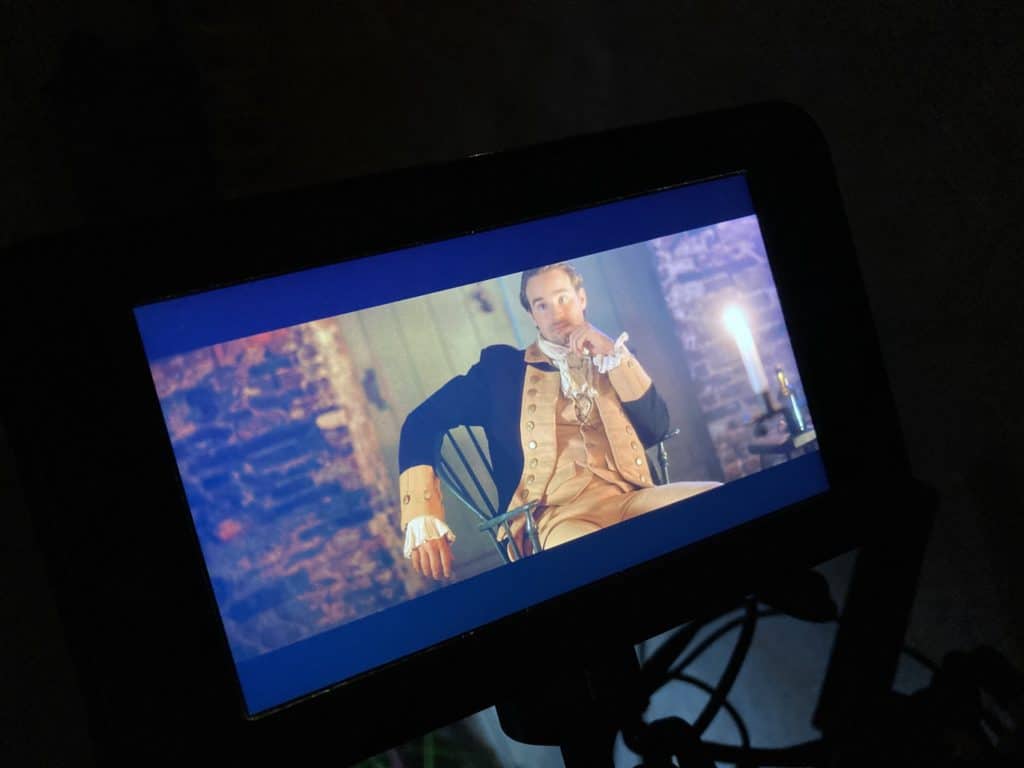
The theater company partnered with Washington, D.C.-based CabezaHueca Films, helmed by four-time Emmy Award-winning filmmaker and producer Mario Ramos, to produce the movie.
This version of Macbeth takes place in the American colonies instead of 11th century Scotland. Taking advantage of Maryland’s rich colonial heritage, scenes were shot at historical locations throughout Anne Arundel County, including Historic London Town, the Gresham Estate and St. Anne’s Church. It is set in 1781, the year Maryland ratified the Articles of Confederation and, later, the British surrendered at Yorktown to end the Revolutionary War.
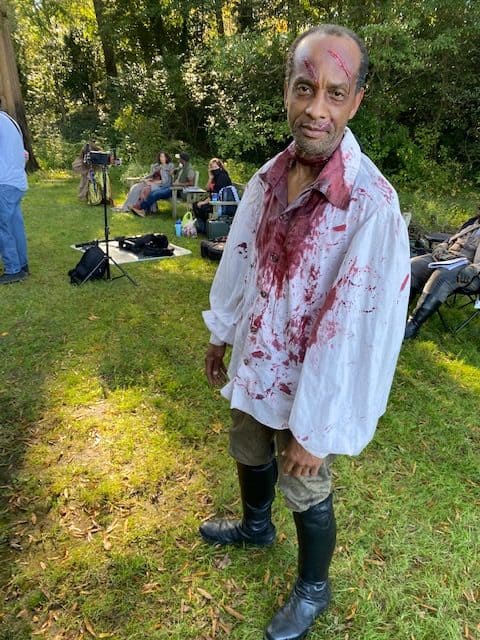
Photo by Jim Reiter.
Turning a theatrical production to film was naturally complicated by the necessary safety protocols. The actors rehearsed virtually at first, then transitioned to in-person work, with the cast and crew in masks. The cinematic details of choosing locations, preparing shots, and matching light from one shooting day to another were still subject to the intrusion of modern times.
Boyett noted that the fog used during one outdoor scene in Historic London Town got so thick that the fire department showed up after being called by a worried neighbor. And of course, planes flying overhead or loud boats whizzing by immediately shut down scenes as the cast and crew waited for the sounds of modernity to fade out.
But after each interruption, the take went on. And so will the shows, when restrictions ease and audiences are allowed to return to the theater.
Meanwhile, ASC’s movie Macbeth will be available for educational use in schools later this year, and more widely sometime in 2021.
